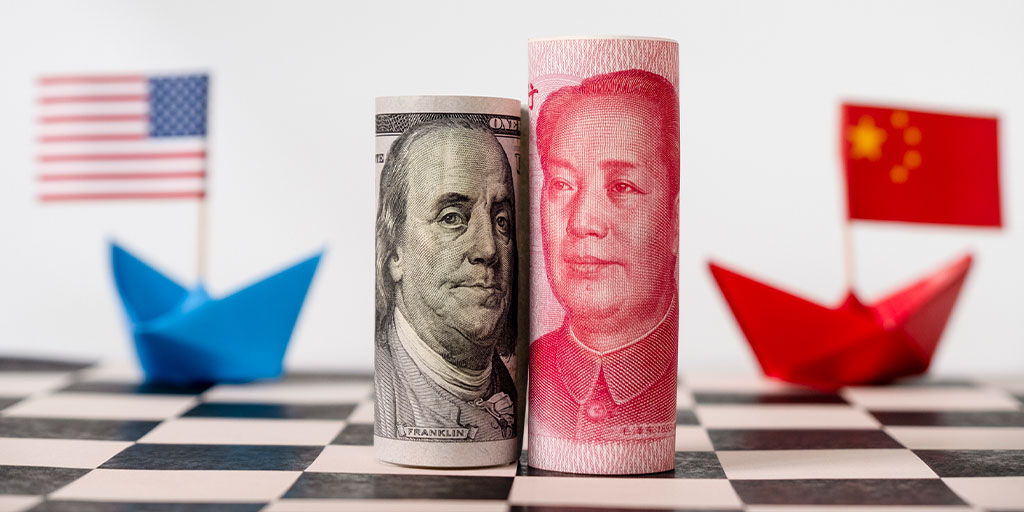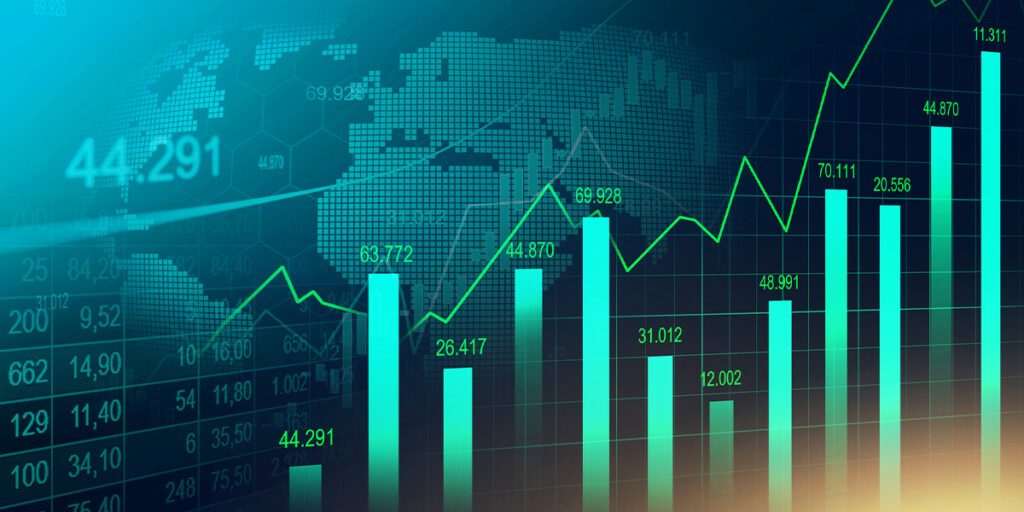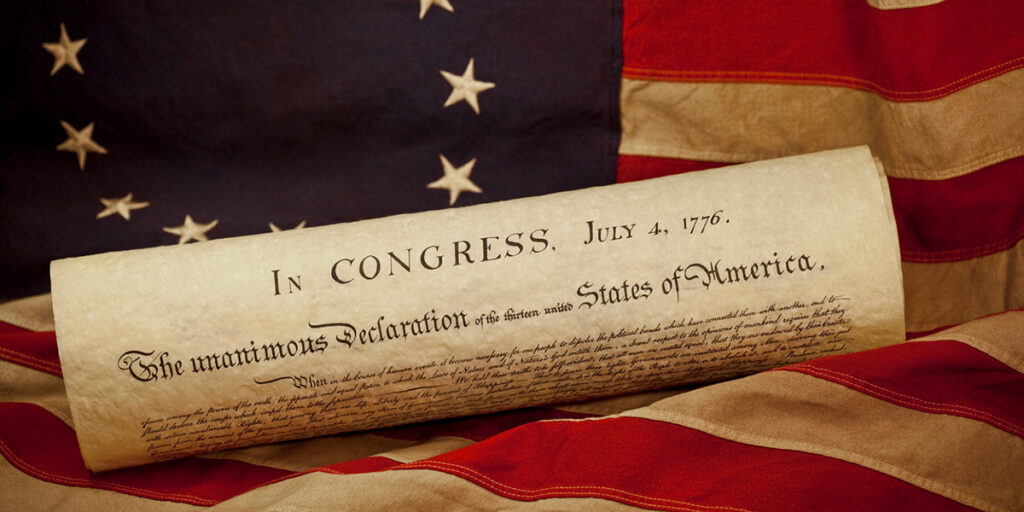We pay very close attention to politics, as they have significant influence on the Market. Our job is to interpret developments and anticipate impacts. It can be a tough task, considering how emotional and divided our nation is politically. We have independent research sources in Washington that help us navigate the Beltway and beyond. We have no bias when we study and discuss politics. We focus on facts. The facts are, politics are playing a major role in the Trade War with China.
There is a historic Presidential election in 2020. Everyone knows this. Not everyone knows that October 1st marks the 70th anniversary of the founding of the People’s Republic of China and is a very important day for China’s President Xi Jinping and the communist party. China wants to project strength on October 1. Our sense is, China does not want to make significant concessions to the US before this date. That might project weakness. Chinese leaders also have a growing issue in Hong Kong to address. They likely want it handled soon. President Trump’s unsolicited advice for President Xi to meet with protesters in person likely did not go over well in Beijing. The biggest risk for China’s communist party leaders is that they appear weak and ineffective because of their inability to resolve the situation in Hong Kong and the trade war with the US. We believe, and our sources agree, that neither Trump nor China have much incentive to make a deal in the near term before they have a better idea of who Trump’s 2020 Democratic presidential opponent is likely to be.
There is evidence that the pressure to do a deal is building in the Oval Office. President Trump keeps railing on the Fed to cut interest rates further and faster. The Stock Market sell-off is taking its toll. An unplanned phone call took place this week between Beijing and Washington. The White House delayed tariffs on products such as cell phones, laptops, toys and video games until December 15th. President Trump said that he didn’t want Americans to feel pricing pressure during the holidays. Interestingly, China went out of its way to point out that the Americans requested the call. Was this a flinch? Usually, the party that requests the conversation is the one that is more eager to negotiate. In this case, if the US decided to walk back its tariff threat, then it would make sense that it requested the call and wanted to inform China in a goodwill gesture. Perhaps the most important thing is that the two sides are talking, which is better than not talking, and raises hope that eventually the two sides might eventually reach a deal, or at the very least, reduces the odds of further escalation in the short-term
On the surface, this could definitely appear to be a sign of weakness with President Trump flinching. China went out of their way to say that the Americans requested the meeting. We have heard that executives from major American importers (think retailers and manufacturers) complained to the White House that they had already locked in purchases for the holiday season and would have to eat the cost of tariffs because they cannot pass them on to the Consumer.
The US can claim it is winning the Trade War, but can that last? That is the big question. China seems to be struggling much more than the US as its growth rate is decelerating fast. The Chinese economy is growing at the slowest rate in three decades. Chinese exports to the US fell by over $5 Billion in June, and China is no longer America’s largest trading partner. That title goes to Mexico now. Japan has surpassed China as America’s largest overseas creditor again, a record it last held in 2016. After adding about $21 Billion since May, both own over $1 Trillion of US Treasury debt. Many have speculated that one trade war retaliatory action China could take is to unload its US Dollar-denominated holdings, and while there are no signs that is happening, it has been a less aggressive buyer of US sovereign debt. The fact is, China would be hurting themselves if they outright sold Treasuries. They need Dollars. They need Dollars desperately right now. China knows it.
Hong Kong remains a central point of struggle. Hong Kong serves as a crucial center for Chinese state-run companies to raise funds and store the wealth of powerful figures on the mainland. Military action could not only wreck its reputation as a reliable commercial hub, it might invite international sanctions that would slow China’s economic growth at a time when Hong Kong’s economy is reeling and a trade deal with US President Donald Trump looks increasingly unlikely. It turns out Hong Kong’s GDP contracted more than originally thought after escalating protests froze economic activity. There was also evidence that thousands of Chinese soldiers have setup just across the border. We will keep watching these developments over the weekend.
Something to remember, and we’ve said it a lot: China plays the long game and is keenly aware that there is a Presidential election in America next year. Our sources tell us that the White House believes China might prefer to take their chances on a one-term Presidency for Trump and see if they can cut a better deal with a Democrat. China also knows how much the economy and Stock Market matter to the American President and voters. Americans vote with their wallets. As James Carville eloquently pointed out in 1992 amidst the Clinton campaign, “It’s the economy, stupid.” Carville also said that if given the opportunity, he would like to be reincarnated in the form of the Bond Market because it can intimidate anyone.
So how might the Chinese view the Democratic candidates? Here is how one of our Washington sources thinks about it:
A candidate like Elizabeth Warren sounds very similar to Trump and may take a harder negotiating position on Huawei and access to technology firms, which is arguably of more concern for China and its future ambitions than tariffs. A candidate like Joe Biden, whom the Chinese have negotiated with before, might be someone that the Chinese view is more willing to offer a more favorable deal compared to Trump. A candidate like Kamala Harris is largely unknown. Neither Trump nor China believes that any deal made between the two is likely to last but making a deal before the election does provide both sides with a political win by removing existing tariffs. China has repeatedly misjudged the US political system in the era of Trump, and the worst thing for China would be to bet that Trump loses the election and not negotiate with him only to see him be re-elected with tariffs in place. If that were to happen, the price of a deal would significantly increase as Trump would almost certainly look to humiliate China.
A 2020 trade deal, a few months before the election, provides the most political upside to Trump. He would proclaim it is the greatest deal, the Stock Markets would seemingly rise, retirement savings would increase, and Trump could promise the economic benefits without having to deliver on them compared to if he made a deal further away from the election where he would be accountable for economic performance. Additionally, Trump’s Democratic opponent would have the burden of having to explain why it is a bad deal, and in politics, if you are explaining, then you are losing.
An interesting thing happened on Wednesday. The S&P 500 closed at 2840. That is the exact closing price on the same day last year. That doesn’t happen very often. It also shows how the Stock Market is churning, with wild rollercoaster like swings, but is not making progress. The Bond Market has been signaling caution for a while. The yield curve has been inverted for a while. Inverted yield curves don’t cause recessions. Instead, they provide a signal that monetary policy is too tight and risks triggering a financial crisis are rising, which can quickly turn into a credit crunch, causing a recession. The Fed cut rates in July, lowering the front-end of the curve, but the Market driven yields kept going down too. The 30-Year Treasury yield went below 2% this week for the first time ever. Stating the obvious: ever is a long time. The Market is saying the Fed is still too high. The Fed could very well cut ¾ of a point by year’s end. Negative rates overseas keep sliding further into negative territory. US interest rates are very high by comparison.
Considering the myriad of issues across Planet Earth, it’s surprising and impressive that the US Stock Market is holding up as well as it is. The S&P is only down 5% from its all-time high, reached just three weeks ago. The Bond Market is telling a different story. So are international stocks, and small-cap stocks and cyclical stocks. The Bond Market is driven by logic. The Stock Market can be influenced by optimism and emotion. That’s where the volatility comes in. The Stock Market has been known to stay all the way until the party ends. There have been 64 major sell-offs followed by 63 relief rallies in the S&P 500 since this Bull Market began. At some point, that trend of “buy the dip” is going to end. You just never know when. The issues and challenges around the globe are serious and very complicated without any clear solutions. The Trade War and how to deal with China is atop the list.
I know this was a long one. Thanks for reading, if you made it this far.
Have a nice weekend. We’ll be back, dark and early on Monday.
Mike







